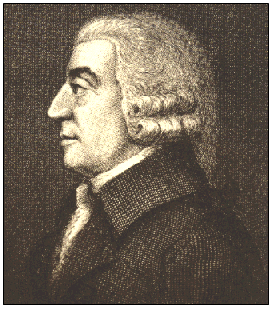By Rick Manning

Who is the radical that would make such a harsh comment?
Surprisingly, it was Adam Smith, in his famous, “An Inquiry into the Nature and Cause of the Wealth of Nations” published in 1776.
Can there be any doubt why the framers of the U.S. Constitution, all very much aware and influenced by the work of Smith, incorporated into our nation’s foundational document the requirement that treaties be ratified by a two-thirds vote in the Senate to ensure that the nation’s interest is protected?
In the weeks ahead, Congress is likely to be considering a proposal that would change this ratification requirement called trade promotion authority or fast track.
Fast-track trade promotion authority is, as Senate Majority Leader Mitch McConnell admits, “an enormous grant of power to the executive branch.” If Congress chooses to pass fast track, they would be lowering the ratification vote from a two-thirds majority of the Senate to a simple majority vote in both the House and Senate — an almost-assured outcome should fast track pass into law. They would also be giving away the Senate’s right to amend a treaty and finally would be guaranteeing that any submitted treaty would come up for a vote within a one-year period.
Advocates for passage of fast track are quick to argue that this type of legislation is how Congress lays down parameters for the President to negotiate within, in exchange for the concessions listed above. However, currently, fast track would apply to a treaty that is in the final stage of negotiation called the Trans-Pacific Partnership. President Obama has bragged that he is, “writing rules for the world economy,” and needs fast track legislation to make it easier to put them in place.
Anyone who has been sentient for the past six years who holds even a modicum of concern about the expanding size and scope of government has to be concerned about this President writing the rules for the world economy, as the rules he is writing for our nation’s economy have proven to be disastrous.
Here are just a few of his “rules for the American economy.”
Obama’s National Labor Relation’s Board tried to stop a U.S. corporation from building a factory in a Right to Work state.
Obama’s EPA has engaged in a wholesale regulatory onslaught against coal resulting in 2014 being the most expensive year in history to purchase electricity (Coal is the largest source of electricity.).
Obama’s NLRB is trying to prevent employers facing union certification elections from having time to inform their workforce about the negatives of organizing by forcing through a quickie election regulation. This is particularly egregious since the labor union already gets first mover advantage by being able to call for an election whenever they feel the situation is advantageous for them.
On top of this, the Labor Department is contemplating regulations that would make it difficult for businesses to get competent help in deciphering union election communication rules to further hamstring the ability for a business owner to make their case against unionization.
The President has also proven to be an extremely poor negotiator for U.S. interests in recent years on the international front, as demonstrated by the Iranian nuclear and China climate negotiations.
The almost-completed treaty with Iran was characterized by Israeli Prime Minister Benjamin Netanyahu as providing a pathway for that leading exporter of terrorism to build nuclear weapons, and the China climate agreement allows pollution-ridden China to not cut carbon emissions for sixteen years, while subjecting America to large, economically-debilitating cuts during that same time period.
However, supporters of fast track attempt to provide comfort for those with concerns about Obama’s agenda by assuring that corporate and other interest groups have had a hand in shaping the negotiations in the TPP deal that covers 40 percent of the world’s economies.
Apparently, they have never read Adam Smith’s cautionary statement about this exact type of corporate cronyism. A cronyism where President Obama gets to be the arbiter over whose corporate interests are served and whose are not without even a shred of transparency.
Based upon the Obama track record and Adam Smith’s prescient writings, Congress should maintain every bit of their authority over this President’s treaty power by resoundingly denying him trade promotion authority.
Rick Manning is the President of Americans for Limited Government.







